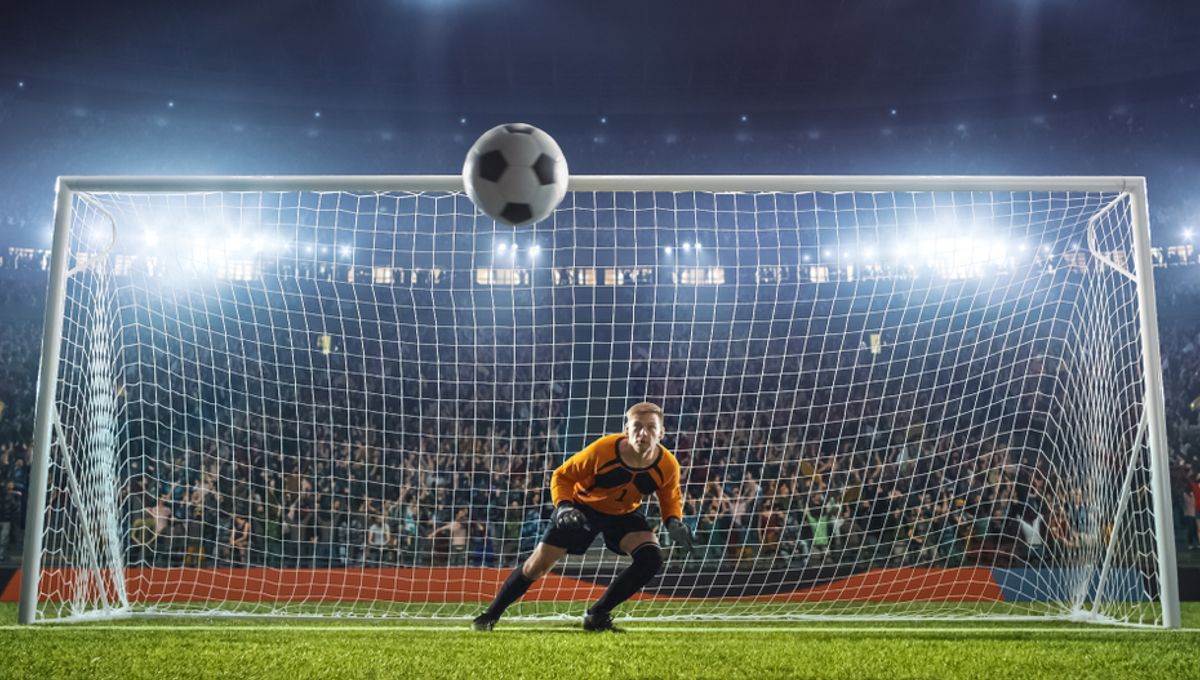
Being a successful goalkeeper in football, or soccer, requires not only the capacity to leap and catch, but to make decisions faster than other athletes, let alone the rest of the population. For the first time a study reveals goalkeepers see the world, and process information they receive, differently from everyone else.
“Unlike other football players, goalkeepers are required to make thousands of very fast decisions based on limited or incomplete sensory information,” said Michael Quinn of Dublin City University in a statement.
“This led us to predict that goalkeepers would possess an enhanced capacity to combine information from the different senses, and this hypothesis was confirmed by our results.”
Quinn and colleagues had 60 participants respond to flashes of light, sometimes coinciding with audible beeps, and say whether there had been one flash or two. Twenty participants were professional goalkeepers, 20 played football in other positions, while the rest were non-players of similar age. The closer the sounds came to a flash, the more likely people were to say they had seen two, indicating sight and sound were being integrated.
However, the goalkeepers were noticeably different from the other two categories. They only confused sounds with sight when the two occurred extremely close together, whereas the other categories had what the researchers call a “wider temporal binding window”. The differences were dramatic: while non-footballers’ and outfielders’ scores were similar, sounds needed to be three times closer to sights to confuse goalkeepers.
Goalkeepers are apparently better at separating out different sorts of sensory input, which allows them to focus on what is important when faced with on-rushing players in a noisy stadium. The study also showed they were more efficient at processing confusing inputs, and at estimating the timing of events.
“We propose that these differences stem from the idiosyncratic nature of the goalkeeping position that puts a premium on the ability of goalkeepers to make quick decisions, often based on partial or incomplete sensory information,” the authors write.
Aside from needing to screen out crowd noises, goalkeepers use sounds such as boot meeting ball to decide what to do, particularly if their view is blocked. However, because sound travels more slowly than light, there is a delay in these noises reaching them that can become significant the further out the kick is taken. The authors think they’ve learned to deal with the way the two inputs interact in a way few other people do,
What the researchers admit they don’t know is whether the skill comes purely from brain rewiring over a lifetime of play or, as lead author Dr David McGovern put it, “Could it be that these differences in multisensory processing reflect an inherent, natural ability that draws young players to the goalkeeping position?”
Quinn’s background offers an unusual perspective on the differences between goalkeepers and other footballers. His father, Niall Quinn, at one time held the record for the most goals scored for Ireland, but Michael became a professional goalkeeper before studying psychology.
“While many football players and fans worldwide will be familiar with the idea that goalkeepers are just ‘different’ from the rest of us, this study may actually be the first time that we have proven scientific evidence to back up this claim,” McGovern said.
The team wants to do further research on whether playing defense or attack produce subtler differences in players’ mental processing. There’s also the question of where these skills might best be applied when the time comes for goalkeepers to retire. It’s certainly better than the brain damage associated with heading the ball.
The study is published in Current Biology.
Source Link: Football Goalkeepers Sense The World Differently To Everybody Else